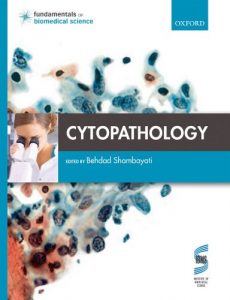Cytopathology provides a broad-ranging overview of the microscopic study of normal and abnormal cells, which embraces the latest imaging and visualization methods to study the structure of cells. The full colour presentation features over 400 figures.
Written with the needs of the biomedical scientist centre-stage, it provides a firm grounding in normal cell structure, and the abnormal features that are indicative of different clinical conditions. It also explains how screening programmes can be used to detect changes early, giving an invaluable opportunity for treatment regimes to be implemented in a timely way.
Crucially, it demonstrates throughout how an understanding of cellular physiology underpins the key investigations carried out by a biomedical scientist to forge a clear link between science and practice.
The series is developed in partnership with and endorsed by the Institute of Biomedical Science. See ibms.org for more information.
Online Resource Centre
The Online Resource Centre to accompany Cytopathology features:
For registered adopters of the book:
· Figures from the book, available to download
For students:
· An interactive Digital Microscope, encouraging the exploration of tissue samples
· Self-assessment modules to help you to check and reinforce understanding of the basic science introduced in each volume
· Video podcasts including interviews with practicing biomedical scientists, and 'in the lab' footage showing biomedical science in practice
The Fundamentals of Biomedical Science series is written to reflect the challenges of practicing biomedical science today. It draws together essential basic science with insights into laboratory practice to show how an understanding of the biology of disease is coupled to the analytical approaches that lead to diagnosis.
Assuming only a minimum of prior knowledge, the series reviews the full range of disciplines to which a Biomedical Scientist may be exposed - from microbiology to cytopathology to transfusion science. Alongside volumes exploring specific biomedical themes and related laboratory diagnosis, an overarching Biomedical Science Practice volume gives a grounding in the professional and experimental skills with which any Biomedical Scientist must be equipped.
Written with the needs of the biomedical scientist centre-stage, it provides a firm grounding in normal cell structure, and the abnormal features that are indicative of different clinical conditions. It also explains how screening programmes can be used to detect changes early, giving an invaluable opportunity for treatment regimes to be implemented in a timely way.
Crucially, it demonstrates throughout how an understanding of cellular physiology underpins the key investigations carried out by a biomedical scientist to forge a clear link between science and practice.
The series is developed in partnership with and endorsed by the Institute of Biomedical Science. See ibms.org for more information.
Online Resource Centre
The Online Resource Centre to accompany Cytopathology features:
For registered adopters of the book:
· Figures from the book, available to download
For students:
· An interactive Digital Microscope, encouraging the exploration of tissue samples
· Self-assessment modules to help you to check and reinforce understanding of the basic science introduced in each volume
· Video podcasts including interviews with practicing biomedical scientists, and 'in the lab' footage showing biomedical science in practice
The Fundamentals of Biomedical Science series is written to reflect the challenges of practicing biomedical science today. It draws together essential basic science with insights into laboratory practice to show how an understanding of the biology of disease is coupled to the analytical approaches that lead to diagnosis.
Assuming only a minimum of prior knowledge, the series reviews the full range of disciplines to which a Biomedical Scientist may be exposed - from microbiology to cytopathology to transfusion science. Alongside volumes exploring specific biomedical themes and related laboratory diagnosis, an overarching Biomedical Science Practice volume gives a grounding in the professional and experimental skills with which any Biomedical Scientist must be equipped.






